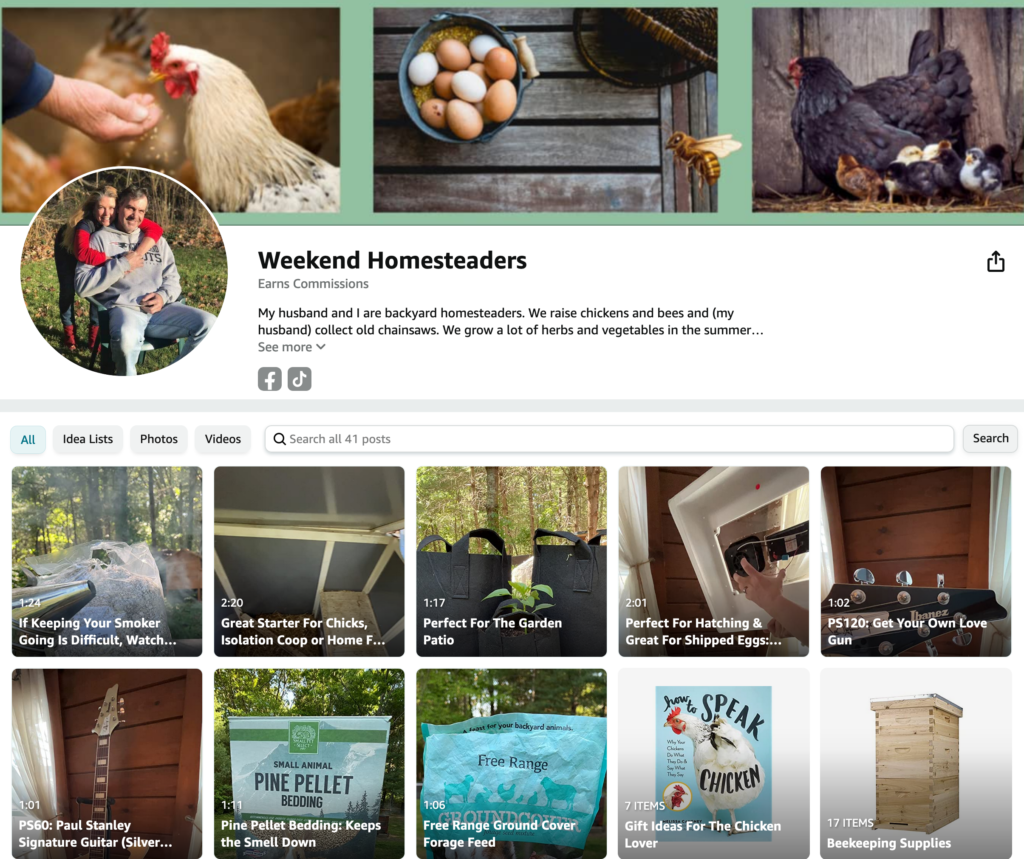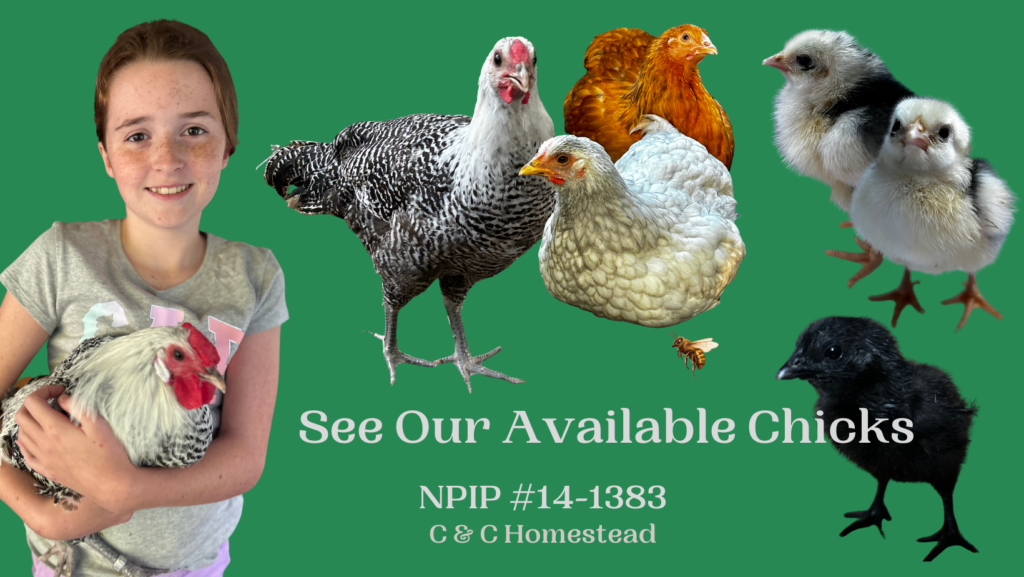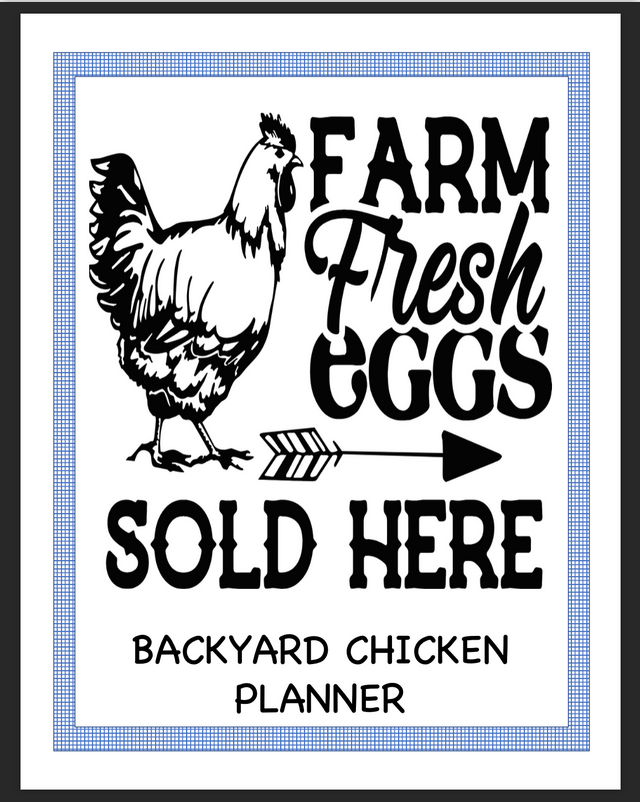Balancing Corporate & Homesteading Lifestyles
Creating a Draft-Free, Enrichment Filled Brooder

🏡 Creating a Draft-Free, Enrichment-Filled Brooder
Raising healthy, happy chicks starts with a well-designed brooder. The two most overlooked — but most important — things for long-term success are:
- Preventing drafts (which can chill or stress chicks)
- Providing enrichment (to prevent boredom and promote healthy development)
Let’s dive into both:
🌬️ Step 1: Create a Draft-Free Brooder
Chicks are extremely sensitive to cold air and sudden temperature changes, especially in their first 2–3 weeks. A drafty brooder can cause stress, pasty butt, piling (which leads to injuries), and even death in severe cases.
✅ Tips for Making It Draft-Free:
- Choose the right container:
- Solid plastic totes, galvanized metal stock tanks, or wooden boxes all work well.
- Avoid open-sided wire cages or mesh walls in the first few weeks — they let in too much airflow.
- Keep it low to the ground, with high sides:
- Chicks don’t need vertical space at first — they need warm, protected space with no cross breeze.
- Use a draft shield if needed:
- Cardboard or plastic wrap around the sides can block drafts, especially if you’re using an open brooder in a garage or barn.
- Avoid placing near vents or windows:
- A brooder near a door, fan, or window can cause constant temperature fluctuations.
- Monitor temperature at chick level:
- Use a thermometer right where the chicks are — not above them. Keep the warm zone at 95°F during Week 1 and reduce by 5°F each week.
🧠 Step 2: Add Chick-Friendly Enrichment
Chicks are curious by nature — they peck, scratch, explore, and socialize. Without stimulation, they can become bored, anxious, or aggressive (pecking each other, huddling, or being noisy). Enrichment reduces stress, boosts development, and creates calmer, more social birds.
🐤 Simple Enrichment Ideas for Your Brooder:
- Mini perches (from Week 1–2):
Use a low wooden dowel or stick just off the ground. Even 2-week-old chicks will try roosting. - Herb bundles or foraging greens:
Hang or place bundles of chick-safe herbs (like parsley, mint, oregano) for them to peck and explore. Bonus: some herbs support immunity and gut health. - Mirror or shiny object:
A small mirror (secured safely) keeps solo or small-group chicks company and entertains them. - A feather duster or stuffed animal:
Especially helpful for lone chicks or small groups — gives them something soft to snuggle. - Shallow dust bath (from Week 2+):
Offer a shallow container of clean sand or fine dirt for them to explore and preen. Helps keep feathers clean and satisfies natural instincts. - Branches or cardboard tunnels:
Clean sticks, pieces of bark, or even a toilet paper roll can provide interest and places to hop, hide, or climb. - Rotating objects:
Switch items out every few days to keep the brooder interesting. Chicks love novelty — and it keeps them busy in healthy ways.
🔐 Bonus Tip: Watch Their Behavior
Your chicks will tell you if they’re too cold, hot, bored, or uncomfortable.
- Huddling together, loud peeping = too cold
- Spreading out and panting = too hot
- Pecking at each other or lethargy = too crowded or bored
- Active, pecking, scratching, and resting between = happy chicks!
🌟 Final Thoughts
A draft-free, enriched brooder creates a calm, natural environment that helps chicks grow into healthy, confident birds. You don’t need to go overboard — just a few thoughtful additions can make a huge difference in how your chicks behave and thrive.
What to Plant in a Small Space
🌿 What to Plant in a Small Space: High-Yield Crops for Homesteaders
Even with just a few raised beds, containers, or tucked-away corners, you can grow a surprising amount of food — if you choose your crops wisely. The key is picking plants that are:
- Productive over time
- Grow vertically or compactly
- Quick to mature
- And/or can be harvested multiple times
Here’s what to plant if you want maximum harvest from minimal space:
🥬 1. Leafy Greens (Cut-and-Come-Again)
These are your MVPs — fast-growing, don’t take much room, and you can harvest them again and again.
Best picks:
- Lettuce (looseleaf types like Black Seeded Simpson, Red Sails)
- Spinach
- Swiss chard
- Kale
- Mustard greens
- Arugula
✅ Why they're great:
- Ready in 30–45 days
- Can be grown in tight rows or containers
- Perfect for succession planting (plant every 2–3 weeks for a continuous harvest)
🥒 2. Cucumbers (Trellised)
Cucumbers thrive when grown vertically, which saves ground space and boosts airflow to reduce disease.
Best picks:
- Pickling types (like Boston Pickling or National)
- Bush varieties for containers
✅ Why they're great:
- One plant can produce dozens of cucumbers
- Continuous harvest over many weeks
- Perfect for pickling, fresh eating, or sharing
🫑 3. Peppers (Sweet or Hot)
Peppers are compact and productive — especially in warm climates or greenhouses.
Best picks:
- Bell peppers
- Jalapeños
- Banana peppers
- Shishitos (very high-yield!)
✅ Why they're great:
- High yield per plant
- Can be grown in pots or tight rows
- Preserve well by freezing, fermenting, or drying
🫘 4. Pole Beans (Vertical Powerhouses)
Pole beans climb — which means they take up virtually no ground space and keep producing for weeks.
Best picks:
- Kentucky Wonder
- Blue Lake
- Rattlesnake beans
✅ Why they're great:
- Produce more than bush beans in the same footprint
- Just 4–6 plants can give you bowl after bowl of beans
- Nitrogen-fixing bonus: enriches your soil
🧅 5. Green Onions / Scallions
Scallions grow fast and don’t require full bulb development, so you can plant them close together.
✅ Why they're great:
- Harvest in 30–60 days
- Easy to regrow from kitchen scraps
- Great use of vertical planters or narrow garden edges
🥕 6. Root Veggies (Tight Spacing = Big Payoff)
Great for containers or deep raised beds. Use succession planting to keep roots coming.
Best picks:
- Carrots (Nantes or Chantenay types)
- Radishes (super fast: 20–30 days)
- Beets (plus, you get the greens!)
✅ Why they're great:
- Don’t take up much surface area
- Radishes can grow between slower crops like carrots or beets
- Beets give you a double harvest (roots + leaves)
🍅 7. Cherry or Grape Tomatoes (Trellised)
If you only grow one tomato in a small space — make it a cherry or grape variety. They produce like crazy and ripen faster than big slicers.
Best picks:
- Sungold
- Sweet 100
- Black Cherry
✅ Why they're great:
- Tons of fruit per plant
- Grow vertically in cages or on trellises
- Perfect for salads, roasting, or snacking
🌿 Bonus Picks:
- Zucchini (Bush type): Just one plant can feed your family — go with compact varieties like Bush Baby
- Herbs: Basil, parsley, thyme, cilantro — grow well in containers and keep producing
- Malabar spinach or New Zealand spinach: Heat-tolerant and grows vertically
👩🌾 Tips for Small-Space Success
- Use vertical space: Trellises, cages, or fences = more food, less sprawl
- Interplant strategically: Pair tall plants with low growers (e.g., lettuce under tomatoes)
- Succession plant: As soon as you harvest, replant with something else
- Grow in containers: Perfect for herbs, greens, or peppers — even on a patio or porch
Why Can’t I Get Hugs From Everyone?

Hello there, humans. It’s me, Cluck Kent, your friendly neighborhood roost reporter, perched on my favorite bale of straw. I’m watching visitors come and go from afar (with my super-vision, of course) and asking myself the burning question: “Why can’t I get hugs from everyone?” Trust me, I’m quite huggable. But it turns out there’s a big reason why my caretakers keep telling people to step back and scrub up.
The Visitor Conundrum
I’m a sociable bird—any chance to flex my feathers, I’m in. But apparently, flocks like mine are susceptible to all sorts of icky germs that visitors might bring with them from other farms, the feed store, or even their own backyards. Diseases and pests can hitchhike on people’s boots, clothes, hands… basically anywhere. And let me tell you, these uninvited “guests” can make a coop feel less like a peaceful fortress and more like a battleground.
Biosecurity 101 (A.K.A. “Why I Don’t Get a Hug”)
My caretaker calls it biosecurity, which is a fancy way of saying “keeping germs out.” Here are the basics they enforce whenever a visitor arrives:
Hand Washing
Before anyone even thinks about stepping into our domain, they get a good soap-and-water scrub. Hand sanitizer might be quicker, but a full wash gets rid of more bacteria and viruses. Turns out, squeaky-clean hands make for happy hens.
Protective Footwear (or Footbaths)
I used to think the caretaker was just making a fashion statement with all those plastic boot covers and foot dips. Nope! The idea is to prevent visitors from tracking in chicken diseases on their shoes. So, if you come strolling in with muck from your own coop or a public place, guess who’s at risk? Yours truly—and the entire flock.
Clean Clothes
If someone has been around other birds or livestock, my caretaker will suggest changing clothes before coming in. That might feel like an inconvenience, but hey, we’re worth it.
Limit Physical Contact
And here’s the heartbreak: no big group hugs. Believe me, I would love to show off my fluff and get some attention, but the risk of spreading germs is too high. So, for now, a friendly wave from a few feet away will have to do.
Why It Matters
You might think, “Oh, just one little friendly pat on the back can’t hurt.” But disease outbreaks can happen swiftly—things like avian influenza, Marek’s disease, or coccidiosis can rapidly spread through my flock if we’re not careful. Even something as simple as mites or lice can hop a ride on you and give me an itchy new roommate I never asked for.
I’m a superhero, sure—but I’m not invincible. My caretaker says prevention is the best superpower there is. Keeping a healthy distance and practicing good hygiene help ensure I can continue my heroic deeds (mostly involving saving my flock from boredom and championing free-range bug hunts).
My Hope for the Future
One day, maybe we’ll have advanced technology that zaps all germs instantly, and I’ll be able to greet visitors with a hearty flap and a friendly cluck—hugging included. Until then, my caretaker’s guidelines are in place to keep me and my flockmates healthy and disease-free.
It’s tough love, but trust me: those few precautions keep the fortress secure, and they keep me (your favorite roost reporter) alive and well. So next time you drop by, remember: wash up, gear up, and be kind to us from a distance. We’ll cluck our thanks in return, even if we can’t leap into your arms—yet!
Stay safe out there, humans, and thanks for looking out for me.
—Cluck Kent
Belgian d’Uccle Chickens: Everything You Need to Know
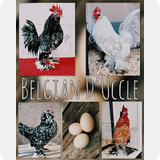
We are excited to be adding this breed to our flock!
Small in size but overflowing with charm, Belgian d'Uccles (pronounced "dew-clay") are beloved for their fluffy beards, feathery feet, and friendly personalities. These true bantams are not just beautiful—they are full of personality and make wonderful pets for backyard flocks!
In this guide, we’ll cover everything you need to know about these fancy little birds, from their history and genetics to egg production, breeding, and fun facts.
Isolation & Quarantine: Keeping Your Flock Safe from Hidden Threats

Bringing new chickens into your flock is exciting, but it also comes with risks. Whether you’re introducing a new hen, a rescued bird, or even hatching your own chicks, isolation and quarantine are two of the most critical steps you can take to protect the health of your flock.
But aren’t isolation and quarantine the same thing? Not exactly. Let’s break it down, step by step, and talk about why you need them, how to do them properly, and how to set up the perfect quarantine area.
🛑 Isolation vs. Quarantine: What’s the Difference?
Many people use the terms isolation and quarantine interchangeably, but they serve two different purposes in flock management:
🚨 Quarantine = Prevention
✔ Used for new birds before introducing them to the flock
✔ Purpose: To monitor for hidden illness or external parasites
✔ Length: 4 weeks (minimum), but some adjust based on source reliability
✔ Location: A separate area away from your flock
💡 Goal: Keep potential diseases out and prevent them from spreading.
🤒 Isolation = Treatment
✔ Used for sick or injured birds that are already part of your flock
✔ Purpose: To prevent disease spread and allow for focused care
✔ Length: Until the bird recovers or is cleared by a vet
✔ Location: A quiet, stress-free area where they can rest
💡 Goal: Protect the flock and give the sick bird the best chance to recover.
🐔 Setting Up a Proper Quarantine Area
📍 Choosing the Right Location
A quarantine pen should be at least 30 feet away from your main flock, if possible. Why? Some diseases are airborne or spread through contaminated clothing, feed, and water. The further apart, the better!
Ideal locations:
✔ A spare coop or tractor
✔ A garage or barn (ventilated but predator-proof)
✔ A separate fenced-off pen far from the main flock
NOT ideal locations:
❌ Right next to the main coop (disease can still spread!)
❌ Inside the same chicken run with just a fence divider
❌ Anywhere that shares feeders, waterers, or dust-bathing spots
🏡 Quarantine Pen Setup Checklist
A good quarantine setup should be safe, comfortable, and easy to clean. Here’s what you need:
✔ Shelter
🐓 A small coop, crate, or enclosed pen that’s predator-proof
🐓 Protection from wind, rain, and extreme temperatures
🐓 Ventilation to prevent moisture buildup (but no drafts!)
✔ Flooring & Bedding
🐓 Pine shavings or straw for comfort
🐓 Easily cleanable flooring (avoid dirt floors—harder to disinfect)
🐓 Change bedding often to monitor droppings for illness
✔ Food & Water (NO SHARING)
🐓 Separate feeder & waterer—don’t share with the main flock
🐓 Fresh, clean water at all times
🐓 Balanced feed appropriate for the bird’s age and condition
✔ Disinfection Station
🐓 A designated pair of boots and gloves for quarantine area use
🐓 A foot bath (a shallow tray with disinfectant) before and after visiting
🐓 Hand sanitizer or a place to wash hands nearby
💡 Pro Tip: Always care for your main flock FIRST, then visit the quarantine pen last. Otherwise, you could carry germs from the new bird to the flock!
⏳ How Long Should Quarantine Last?
🐥 Recommended Quarantine Period: 4 Weeks Minimum
This allows time for hidden illnesses to appear. Some diseases can take 2-4 weeks to show symptoms, so don’t cut it short!
Exceptions:
✔ Shorter Quarantine (2-3 weeks) → If you got birds from a trusted, disease-tested source.
✔ Longer Quarantine (6+ weeks) → If birds come from uncertain conditions (rescues, auctions, swaps).
🚨 Remember: Even if a bird looks healthy, it could be carrying diseases that don’t show symptoms right away!
🧐 What to Watch for During Quarantine
Daily health checks are essential. Watch for these warning signs:
🚩 Respiratory Illness Symptoms
🔴 Sneezing, coughing, or wheezing
🔴 Bubbly or watery eyes
🔴 Nasal discharge
🚩 External Parasites (Mites, Lice, Scaly Leg Mites)
🔴 Check under the wings, vent area, and legs
🔴 Flaky scales on legs (sign of scaly leg mites)
🔴 Excessive scratching or feather loss
🚩 Digestive Issues
🔴 Watery or bloody droppings (could indicate coccidiosis)
🔴 Swollen crop or sour smell from the beak (crop problems)
🚩 Odd Behavior
🔴 Lethargy, lack of appetite
🔴 Standing fluffed up alone
🔴 Weakness or uncoordinated movements
If any symptoms appear, extend quarantine and seek treatment. A sick bird should never be introduced to the flock!
🐓 Introducing the Quarantined Bird to the Flock
If the bird stays healthy for the full quarantine period, it’s time for slow introductions.
1️⃣ Start with "See But No Touch" – Place the new bird in a separate pen inside or near the main run for a few days so they get used to each other.
2️⃣ Supervised First Interactions – Expect some pecking (normal pecking order behavior). Separate if there’s serious aggression.
3️⃣ Integrate at Night – Some chicken keepers swear by placing the new bird on the roost at night, so they wake up together and adjust more smoothly.
4️⃣ Watch for Bullying – Monitor the flock for a few days to ensure the new bird is eating and not being excessively bullied.
🐔 Pro Tip: If introducing multiple new birds, they adjust better in pairs or small groups rather than one lone bird.
📌 Final Thoughts on Quarantine & Isolation
While quarantine and isolation take effort, they can save your entire flock from illness and costly vet bills.
✔ Always quarantine new birds, even if they look healthy.
✔ Have a separate, well-ventilated quarantine space.
✔ Watch for signs of illness, parasites, or odd behavior.
✔ Take introductions slowly to prevent stress and injuries.
🌍 We don’t live in a bubble, and no quarantine is 100% foolproof, but taking the right precautions greatly reduces risk. A little patience now = a healthier flock later!
Read Cluck Kent's experience with a Mystery Guest for a fun perspective on quarantine.
📌 Have you ever had to quarantine a bird? What worked (or didn’t)? Share your experience in the comments! 🐓😊
Cluck Kent’s Coop Chronicles: The Mystery Guest!

By Cluck Kent, Flock Safety Reporter
Listen up, flock watchers. We had a situation this week. A new chick showed up—but instead of joining us right away, she got put in a separate pen. Naturally, I had questions. Who was she? Why was she here? And more importantly—why was she locked up like a criminal?
Turns out, this wasn’t some kind of chicken prison—it was quarantine. And as much as I love a good coop conspiracy theory, I have to admit… it’s actually a pretty smart idea.
Let’s break it down.
Talking Before Hatching: How Chicks Communicate Inside the Egg
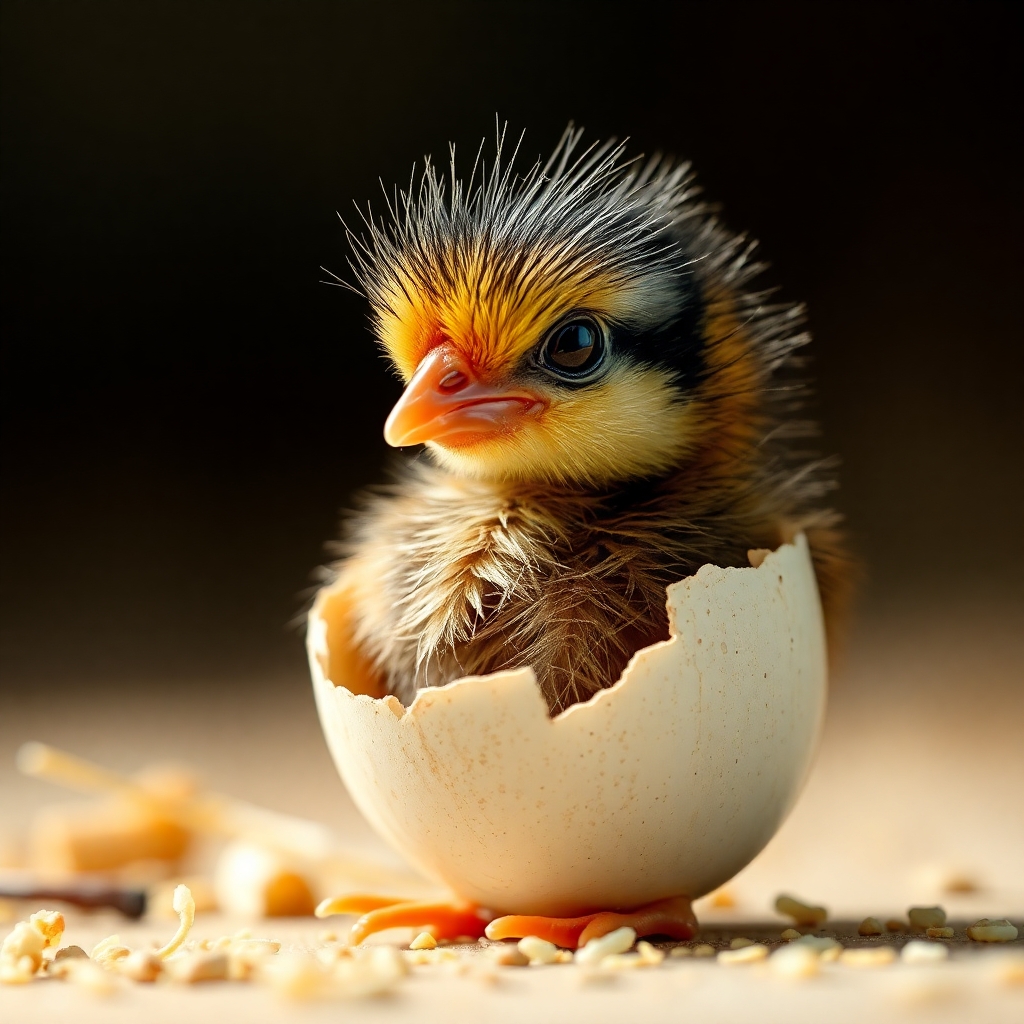
It might surprise you to learn that baby chicks start communicating before they even hatch! Around day 19 of incubation, chicks begin making soft peeping sounds from inside the egg—but why? And how do they do it? Let’s take a closer look at this incredible form of pre-hatch communication and why it plays a vital role in a chick’s survival.
The Dirty Boot Disaster by Cluck Kent

By Cluck Kent, Flock Safety Reporter
Listen up, fellow cluckers—today, I’m exposing a high-risk security breach that could bring disaster to the coop. It wasn’t an aerial attack by hawks. It wasn’t a rogue raccoon raid. Nope—it was something much sneakier.
It was… a poop-covered intruder.
One morning, I noticed something alarming—muddy, gunk-covered footprints trailing right through the coop. My human had just waltzed in straight from the backyard, tracking in who-knows-what.
I knew I had to investigate.
Was this a one-time offense? Or… had they been bringing in outside filth every day?! 😱
I tailed them on their next mission—off to the feed store, the compost pile, even other chicken coops (oh, the betrayal!). Then, I watched in horror as they walked right back inside our run without a second thought.
Germs. Bacteria. Viruses. Right into our home.
What’s the Big Deal?
You might think, “It’s just a little dirt, Cluck Kent! Don’t be dramatic.”
Oh really? Let me spell it out for you. That “dirt” could be carrying:
❌ Avian flu – Deadly. Spreads like wildfire. No cure.
❌ Marek’s disease – A silent, devastating virus.
❌ Coccidiosis – Makes young chicks weak and sick.
❌ Random gross bacteria – Because who wants mystery germs in their food?!
That’s right. Your shoes could be a disease superhighway.
Introducing: The Magic Boot Zone (AKA Coop-Only Shoes)
After my investigation, I demanded action. And my human finally got the memo:
🚫 No more tracking in outside gunk! 🚫
Here’s the new rule:
🐔 COOP SHOES ONLY! 🐔
That means:
✔ One pair of shoes dedicated to the coop—they never leave.
✔ No stepping inside the run in dirty, contaminated boots.
✔ No “quick trips” in outside shoes (nice try, human).
What If You “Forget” the Rule? (I’m Watching You 👀)
Fine. Let’s say you accidentally step into the coop in your regular shoes. What now?
✅ Foot Bath Station: A shallow container with a disinfecting solution to clean off germs before entering.
✅ Disposable Shoe Covers: If you must enter in outside shoes, cover them first!
✅ Disinfectant Spray: At least clean your shoes before stepping in—basic hygiene, people!
Final Thoughts from Cluck Kent
I may be a fearless flock defender, but even I can’t fight off invisible invaders like bacteria and viruses. That’s your job, humans.
So, do the right thing. Wear coop-only shoes. Set up a foot bath. Keep the flock safe.
And if I catch you stepping in here with dirty boots again? Let’s just say… there will be squawking. 🦸♂️🐔
Cluck Kent vs. The Mysterious Midnight Munchies: A Biosecurity Blunder!

By Cluck Kent, Flock Safety Reporter
Listen up, flockmates—today, I’m exposing a biosecurity breach so reckless it could have brought chaos to the coop.
It all started with a midnight snack.
There I was, wide awake while everyone else snoozed—except for one sneaky little mouse darting around the run. My superhero senses tingled. Something was up.
That’s when I spotted it—a forgotten pile of feed just outside the coop. Jackpot!
Naturally, I did what any brave, slightly peckish rooster would do—I swooped in for a bite.
But before I could claim my prize, The Voice rang out.
“Cluck Kent! WHAT are you eating?!”
I froze, beak mid-bite. Mom had caught me red-feathered.
What’s the Big Deal? It’s Just a Snack… Right?
Wrong. Turns out, that innocent-looking grain pile was a biosecurity nightmare waiting to happen.
Here’s why eating old or exposed feed is a one-way ticket to Trouble Town:
❌ Mold & Toxins – Old, damp feed = a breeding ground for deadly mycotoxins.
❌ Rodent Poop Surprise – Mice love feed piles. And you know what else they leave behind? Diseases.
❌ Wild Bird Buffet – If sparrows or pigeons snacked there first, they could’ve left bird flu, parasites, or bacteria behind.
❌ Bugs & Worm Eggs – Ever heard of gape worm? No? Well, you don’t want to. Trust me.
I wasn’t sneaking a midnight snack—I was about to poison the whole flock.
How to Keep Your Coop Rodent & Disease-Free
After my near-miss with mystery germs, Mom stepped up her game. Here’s how she made sure this never happens again:
✔ No More Overnight Snacks – Feeders get put away at night to avoid unwanted dinner guests.
✔ Daily Coop Cleanup – Any spilled feed is cleaned up daily so it doesn’t attract pests.
✔ Rodent-Proof Storage – Feed is now locked up in metal bins—mice can chew through plastic, but not steel.
✔ Wild Bird Control – Extra netting keeps sparrows, pigeons, and their nasty germs out.
Final Thoughts from Cluck Kent
Look, I may be a superhero, but even I can’t fight off invisible villains like bacteria, mold, and parasites. That’s your job, humans.
So, store feed properly, clean up spills, and keep wild critters OUT.
And if you see me sneaking around outside the coop again? I’m definitely not looking for snacks… probably. 🦸♂️🐔
